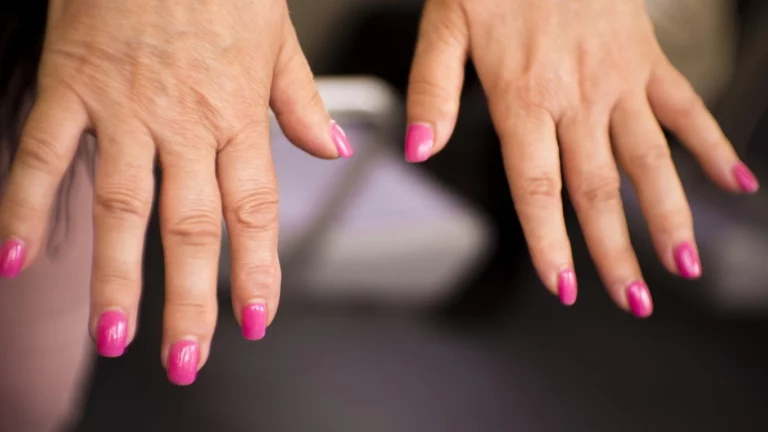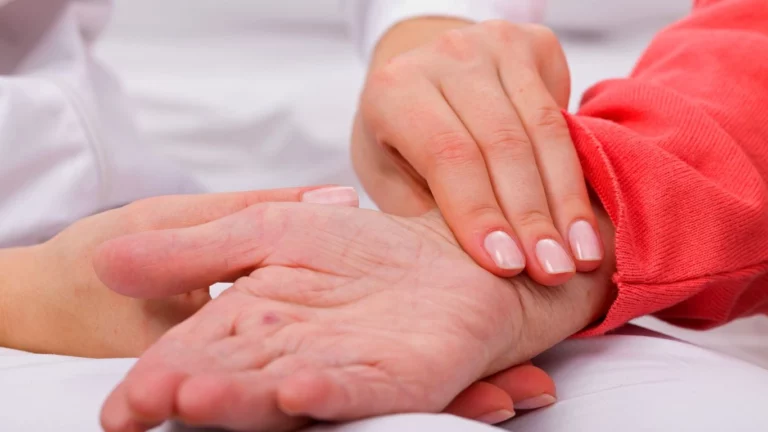Battling GERD and Excessive Saliva: Proven Tips That Actually Work
If you’ve ever had that weird feeling of waking up in the middle of the night with a sour taste in your mouth and a little too much spit pooling—yeah, I’ve been there too. Working in a gastroenterology clinic, I can’t count how many times patients asked, “Why is my mouth always full of saliva, especially when my acid reflux flares up?” So, let’s dive into something a lot of people deal with but don’t always talk about: GERD and excessive saliva production. There’s more of a connection than most people realize, and trust me, it can be annoying, embarrassing, and downright confusing. But there’s a reason behind it—and plenty of ways to manage it too.
What Is GERD Anyway?

Let’s get the basics down first. GERD, or gastroesophageal reflux disease, is what happens when acid from your stomach keeps sneaking up into your esophagus. That acid is supposed to stay put, but when the lower esophageal sphincter (LES) weakens or relaxes at the wrong time, boom—heartburn, regurgitation, and sometimes even coughing or sore throat. Sounds fun, right?
But here’s something many people don’t know: GERD can also cause your body to produce way more saliva than normal. Weird, right? It’s a thing called water brash. I remember a patient—let’s call her Sandy—who came in swearing her mouth was “filling up with spit like a faucet.” Turns out, her acid reflux had been quietly stirring things up, and her body was reacting by cranking up saliva production to try to neutralize that acid. Fascinating stuff!
Why GERD Triggers Excessive Saliva Production

Your Body’s Built-In Firefighter
Think of saliva as your body’s first responder. When stomach acid climbs where it shouldn’t, your body goes, “Uh-oh, better fix this!” and starts producing more saliva to dilute and wash it down. That overproduction of saliva—called ptyalism—isn’t random; it’s a protective mechanism. But it can feel super uncomfortable and inconvenient.
My Clinic Experience: Real Talk
In the clinic, we’d see this symptom a lot more often than you’d expect. Patients often didn’t connect their extra spit with reflux at all. They thought it was dental issues, allergies, or even a sinus problem. Once we dug a little deeper, patterns emerged. A lot of them experienced:
- Excessive salivation especially after meals
- A sour or metallic taste in the mouth
- Frequent swallowing or throat clearing
- Mild nausea or a feeling of fullness in the throat
These little clues helped us trace it back to GERD. And honestly, it was kind of satisfying to finally give them an answer—and a plan.
Common Triggers That Make It Worse

Everyday Habits That Sneak Up on You
Now here’s where it gets real. Some habits might seem harmless but totally fan the flames of GERD—and that means more acid, more irritation, and yep, more saliva. Here’s what we often see make symptoms worse:
- Eating big meals, especially late at night
- Spicy, fatty, or acidic foods (think: pizza, hot wings, coffee)
- Smoking or alcohol—big-time irritants for the esophagus
- Wearing tight clothes around your stomach (those high-waisted jeans can be sneaky!)
- Skipping meals or inconsistent eating schedules
For patients like Sandy, just changing her dinner timing and avoiding her usual late-night snacks made a huge difference. Sometimes, it’s the simple stuff that brings the most relief.
Is It Always GERD? When to Ask More Questions
Other Possible Causes of Excess Saliva
While GERD is a biggie, it’s not the only thing that can crank up your salivary glands. We always check to rule out other issues, especially if GERD treatments don’t help. Possible culprits include:
- Medications like certain tranquilizers or anti-seizure meds
- Dental infections or poor-fitting dentures
- Pregnancy (thanks, hormones!)
- Neurological conditions like Parkinson’s
That’s why seeing a gastro doc—or a good primary care provider—is key. I’ve seen patients go months without answers just because they didn’t mention all their symptoms. A quick chat with someone who listens can make all the difference.
Managing GERD and Excessive Saliva Production Without Losing Your Mind

Alright, now that we’ve unpacked the “why,” let’s get into the “what now?” If GERD and excessive saliva production are crashing your party, the good news is—there’s help. I’ve seen firsthand how small tweaks can make a huge difference. Some of my favorite success stories came from folks who started with basic changes, no fancy prescriptions right off the bat.
Start With the Lifestyle Shifts
This is where I always like to begin, especially with new patients. You don’t have to flip your life upside down—but little daily changes add up. Here’s what we usually recommend:
- Elevate your head when sleeping: Gravity is your friend. Using a wedge pillow or even just propping up your mattress a few inches can help prevent acid from creeping up overnight.
- Watch your meal timing: Avoid eating 2-3 hours before lying down. That late-night snacking? Yeah, it’s gotta go (I know, I miss chips in bed too).
- Keep meals small and balanced: Big meals = big reflux. Try eating smaller portions more often and go easy on fatty or spicy foods.
- Chew gum—but sugar-free: It’s a neat trick. Chewing increases saliva production, but in a good way. It helps neutralize acid and encourages swallowing, which clears things out.
One patient—Mike, a middle-aged teacher—told me he thought he’d never get through another school day without a spit cup. Once we adjusted his eating schedule and suggested antacid gum after lunch, he was golden within weeks.
Medications That Can Make a Big Difference

Now let’s talk meds. While lifestyle is your foundation, sometimes GERD needs a little extra backup. That’s where acid reducers come in—and yes, they’re game-changers for a lot of folks.
Common Medications We See in the Clinic
- H2 Blockers like famotidine (Pepcid): Great for mild to moderate symptoms. Can be taken before meals or bedtime.
- Proton Pump Inhibitors (PPIs) like omeprazole (Prilosec) or pantoprazole (Protonix): These are stronger and often used for more frequent or severe cases. I’ve seen them reduce acid so effectively that even excessive saliva drops off within days.
- Antacids: Think Tums or Gaviscon. Fast relief, but not a long-term fix.
Pro tip from the clinic: Always take PPIs on an empty stomach, usually first thing in the morning. You’d be surprised how many folks saw better results just by tweaking when they took their meds.
When Medications Don’t Work Alone
Sometimes, symptoms linger even with meds. When that happens, we dig a little deeper. In some rare cases, surgical interventions like fundoplication are considered—but that’s only when lifestyle and meds just aren’t cutting it. Honestly, for most patients I’ve worked with, we never had to go that far. It was all about finding the right combo.
Natural Remedies and Alternative Therapies

Let’s be real—not everyone wants to live on meds forever. And I get it. In fact, some of our regulars were all about the more natural path. And while not everything out there is backed by a ton of research, there are a few options that people swear by—and some even have science on their side.
Options Patients Ask About All the Time
- Licorice root (DGL): Known for coating the esophagus and soothing inflammation. Just be sure it’s the DGL (deglycyrrhizinated) version—otherwise, it can mess with blood pressure.
- Aloe vera juice: Some patients find it calming for the digestive tract. Just make sure it’s the kind made for internal use—don’t just chug your skincare gel!
- Slippery elm lozenges: Coats and protects the lining of the throat and esophagus. Great for that burning or raw feeling.
These aren’t miracle cures, but when used alongside lifestyle changes, I’ve seen them offer solid support. Just always check with your provider first—especially if you’re on medications.
When to Circle Back to Your Doctor
If symptoms stick around, especially if you’re also experiencing things like weight loss, difficulty swallowing, or chest pain—don’t brush it off. That’s when we pull in more diagnostic tools like endoscopy or pH monitoring. Catching complications early is key. As someone who’s sat beside hundreds of scopes and assisted through plenty of procedures, I can say—it’s better to investigate than ignore.
GERD and excessive saliva production may sound like a weird combo, but once you understand the link, it makes total sense. It’s your body trying to protect itself. And with the right tools and info, you can absolutely manage it—and feel normal again. Promise.
Real Life, Real Relief: How Patients Are Managing GERD and Saliva Symptoms

By now, you’ve probably realized just how connected everything is when it comes to GERD and excessive saliva production. It’s one of those “the more you know” situations. What’s been super rewarding in my role as a Medical Assistant is seeing the transformation in people who thought they just had to live with this stuff forever.
Case Example: Lisa’s Story
Lisa, a busy mom in her 40s, came into the clinic thinking her excessive saliva was a side effect of anxiety. She was always clearing her throat, especially in the evenings, and kept gum in every bag and drawer just to cope. Turns out, her GERD had gone unchecked for years. Once we got her started on a low-acid diet, added a daily PPI, and encouraged her to stop snacking before bed, the changes were honestly kind of dramatic. She emailed us three weeks later to say she’d finally stopped waking up with a “pillow soaked in drool.” That made my whole week!
Why Tracking Your Triggers Helps
One of the most useful tools I suggest is a simple food and symptom journal. Nothing fancy—just jotting down what you eat, how you feel afterward, and any weird symptoms (like that overactive saliva) can paint a clear picture over time.
- Note the time of day you feel symptoms—it helps connect reflux to meals or sleep positions.
- Track your stress levels. It’s wild how much stress can rev up acid production.
- Mark progress. Even tiny wins are still wins, and they add up.
I’ve had several patients come back saying they discovered their saliva issues flared after specific foods—like tomatoes or citrus—even though they didn’t always get heartburn. Knowledge really is power here.
Helpful Tools and Products Patients Actually Use

Let’s talk gear. Because sometimes, having the right product on hand can make things easier—especially when you’re navigating work, family, and everyday life while trying to manage symptoms.
Clinically Recommended & Real-Life Approved
- Wedge Pillows: Way better than stacking pillows. It helps with that post-meal reflux and keeps saliva buildup from waking you up.
- Antacid Gum: I personally keep some on hand at the front desk for patients who come in complaining of acid after lunch.
- Saliva Control Tablets (like those used for Parkinson’s patients): For extreme cases of ptyalism, these can help reduce salivary flow when other methods fail.
- Portable Water Bottles: Sounds odd, but staying hydrated helps thin saliva and reduce that sticky, thick sensation some people get with GERD.
Of course, talk to your doctor before trying anything new. Even “natural” remedies or over-the-counter products can interact with meds or other conditions.
Building Trust: When to Refer, When to Persist
This one’s important. Not all GERD symptoms respond the same way for everyone. That’s where our team leaned heavily on interdisciplinary care—referring to ENT specialists, dietitians, and even speech-language pathologists when needed.
So if you’ve been trying to manage your reflux and that over-the-top saliva for months with no relief, it’s not a personal failure. You just need a fresh perspective. That’s why we always emphasize follow-up visits. A one-time diagnosis is a start—but the real magic happens in those ongoing adjustments, trust-building, and collaboration with your care team.
What to Ask Your Provider
- Could another condition be causing this saliva issue?
- Is it time for an endoscopy or pH test?
- Should we re-evaluate my current medications?
- Can I see a dietitian or specialist for more help?
Advocating for yourself is part of healing. I’ve seen patients finally get answers after months—or even years—just by asking the right questions.
References
Disclaimer
This article is based on professional experience in a clinical setting and general health education. It is not intended to replace medical advice, diagnosis, or treatment from a qualified healthcare provider. Always consult your physician or gastroenterologist for personalized care regarding GERD, excessive saliva, or any health-related condition.

Camellia Wulansari is a dedicated Medical Assistant at a local clinic and a passionate health writer at Healthusias.com. With years of hands-on experience in patient care and a deep interest in preventive medicine, she bridges the gap between clinical knowledge and accessible health information. Camellia specializes in writing about digestive health, chronic conditions like GERD and hypertension, respiratory issues, and autoimmune diseases, aiming to empower readers with practical, easy-to-understand insights. When she’s not assisting patients or writing, you’ll find her enjoying quiet mornings with coffee and a medical journal in hand—or jamming to her favorite metal band, Lamb of God.







